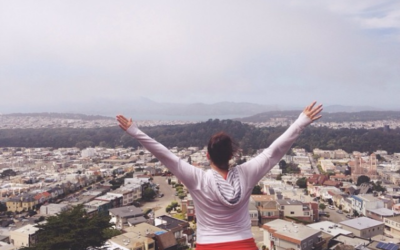Out of the night that covers me,
Black as the Pit from pole to pole,
I thank whatever gods may be
For my unconquerable soul.
In the fell clutch of circumstance
I have not winced nor cried aloud.
Under the bludgeonings of chance
My head is bloody, but unbowed.
Beyond this place of wrath and tears
Looms but the Horror of the shade,
And yet the menace of the years
Finds and shall find me unafraid.
It matters not how strait the gate,
How charged with punishments the scroll
I am the master of my fate:
I am the captain of my soul.
These are the words of a poem written by William Ernest Henley. “Invictus” meaning “invincible” in Latin, was first published in 1875. It is also a theme in the new film, Invictus.
I love movies. I love all kinds of movies. They have the power to incite emotions and make people feel and think about things that they may not have taken the time to think or feel otherwise. I even love the movies that specifically don’t make you think. But, Invictus…was a thinker.
Invictus is a film about the life of Nelson Mandela after the fall of the apartheid in South Aftica. It takes place in a specific time during his term as president when he campaigned to host the 1995 Rugby World Cup in order to unite the people of South Africa.
Pause for a brief history recap (in a nutshell).
I am terrible with history. I can’t remember dates or names to save my life, but Wikipedia sure can, and let me tell you, I’ve learned a few things. Nelson Mandela is the first president of South Africa to be elected in a fully representative democratic election. Before he was elected president, he was an anti-apartheid activist, which landed him in prison for 27 years. He was convicted of charges of sabotage and other crimes committed while he led the movement against the apartheid. (Apartheid: a social and political policy of racial segregation and discrimination enforced by white minority governments in South Africa). After Mandela was released in 1990, he advocated for reconciliation and helped lead the transition toward multi-racial democracy in South Africa.
You may now return to your regularly scheduled program.
Now, here’s what I found interesting.
First of all, Mandela was locked up in a jail cell approximately the size of an average man’s arm span for nearly 30 years. He was locked up because he wanted equality. He fought for equality. Then, when he was released from imprisonment, he immediately forgave the perpetrators of his unfair captivity and worked to unite the “enemies” despite seemingly insurmountable odds. The film is littered with one-liners that depict the struggle, pain and patience that Mandela showed during his plight to unite a divided country. He says, “Forgiveness is a powerful weapon,” and asks all of his family members and employees to begin practicing this forgiveness, for “great leaders lead by example.” This is remarkable to me. Francois even says, “I was thinking how a man could spend thirty years in prison, and come out and forgive the men who did it to him…” His ability to forgive the people that locked him up like an animal for almost 30 years because to him, reconciliation was the only path to true freedom. That’s bravery. That’s courage. That’s leadership.
Enter Springbok – South Africa’s rugby team.
Mandela attends a rugby game and while he’s watching the white fans root for the team and the black fans root against, he determines that this little rugby team is going to unite the country. If he can just figure out a way to unite the fans of the team, he will, in turn, unite the entire country.
Mandela develops a close relationship with the Springbox captain, Francois Pienaar. Mandela views Pienaar as just as much of a leader as he is himself. He instills the same teachings that he learned while in prison, and from the poem he had in his jail cell throughout his imprisonment – what it means to truly be a leader. Slowly but surely, and with much work by both Mandela and Pienaar, the Springbok gained the support of the whole country. With 43 Million people supporting the rugby team, they win the World Cup. But they really won much more than that. Then won united freedom.
What amazes me is Mandela used the power of sports to bring people together. When we think about our lives today, while they are much different than life in South Africa, sports are a big part of them. But what role do sports plan in our lives? In joining lives? Mandela used the rugby team to unite an entire country. It’s incredible to me that all it took was support and belief in one thing, one team, and he could unite a divided country. It’s the power of sports. It’s the power of leadership. It’s the power of putting the past behind us, moving forward, and being an example for those who are following us. It’s truly inspirational.





